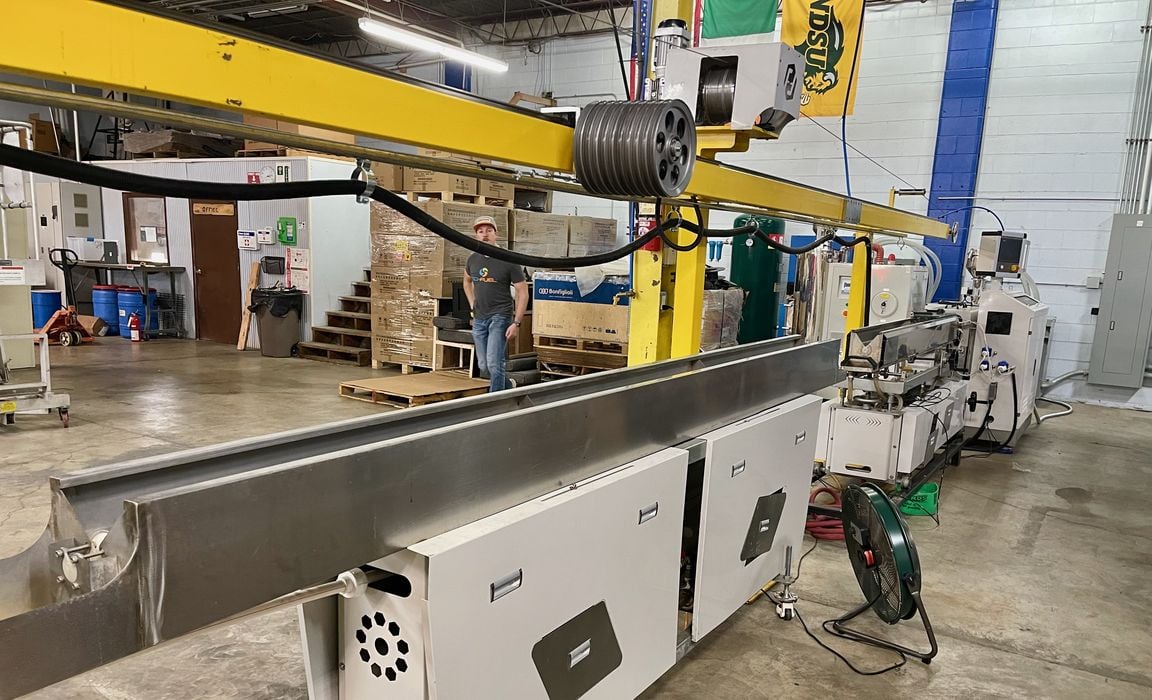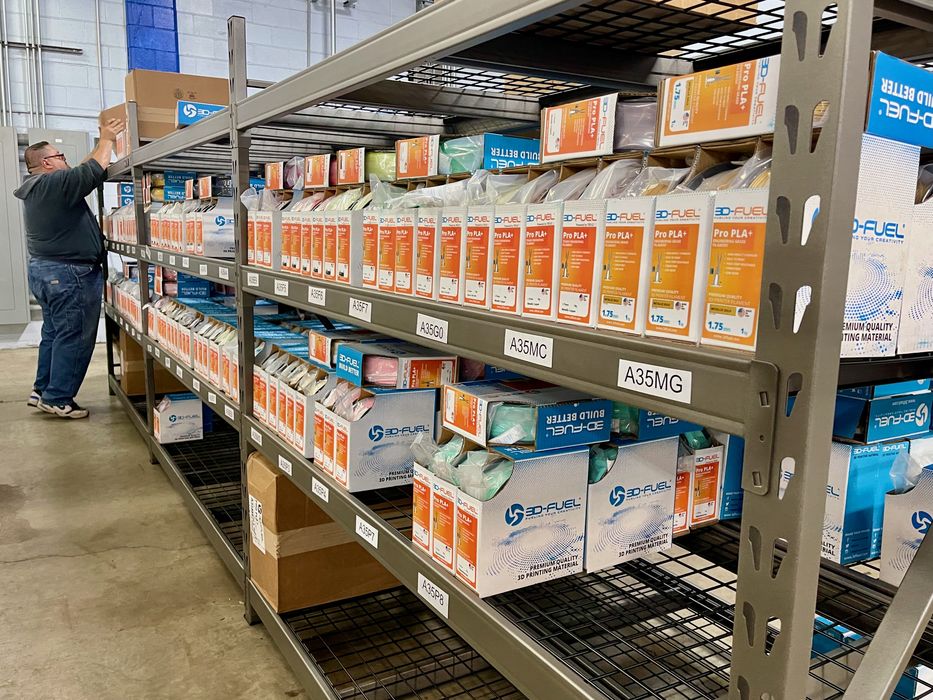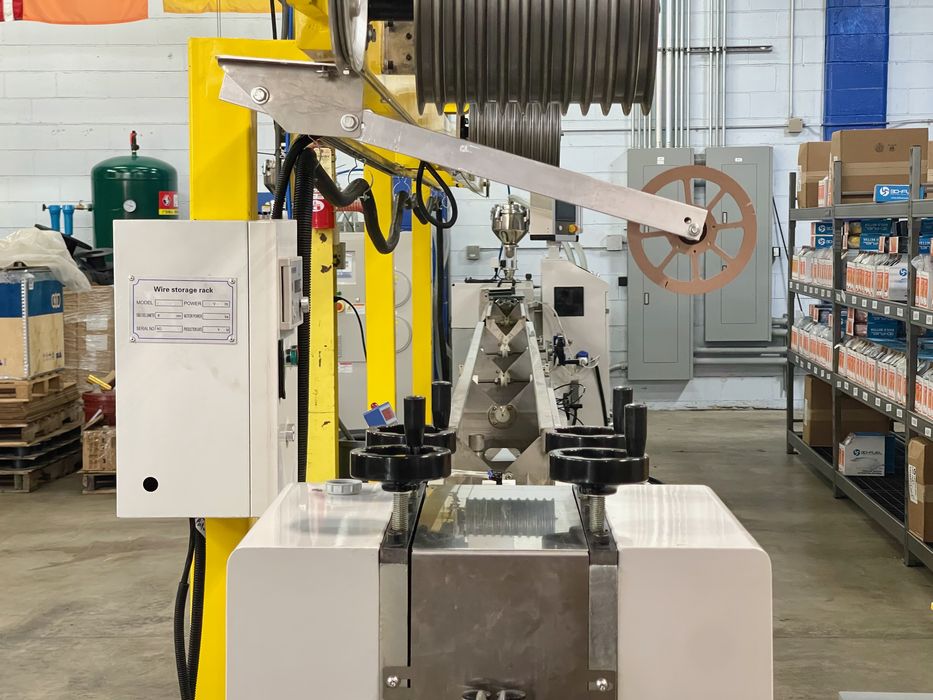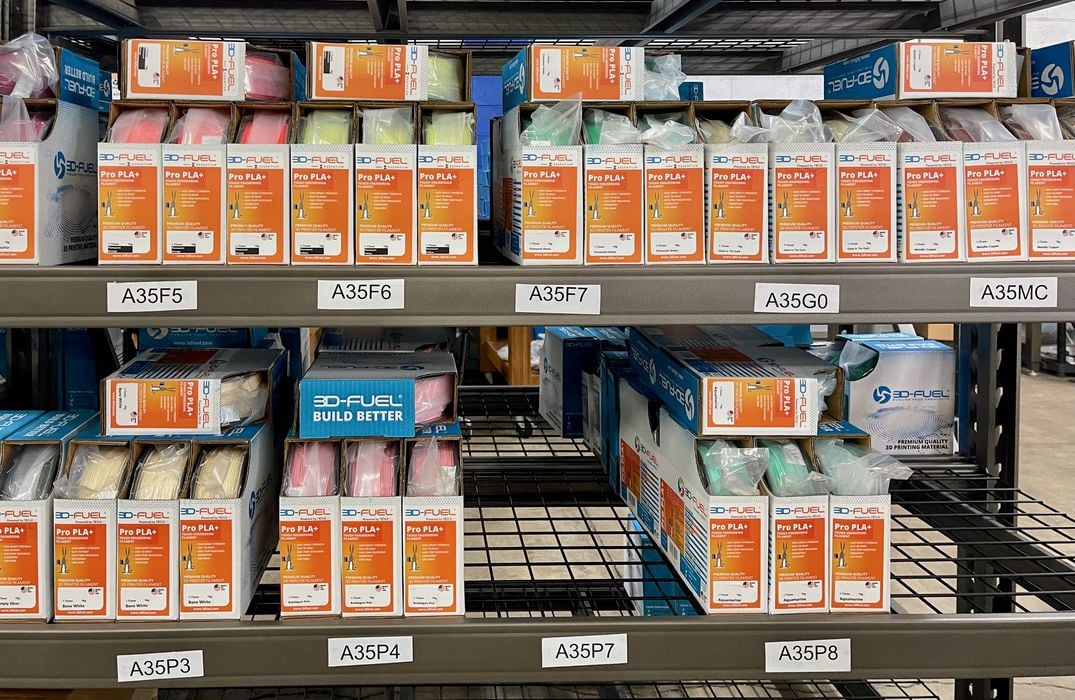
We spent some time with John Schneider of 3D-Fuel.
Schneider is a busy person, as one would expect a serial entrepreneur to be. He’s been involved in 3D printing in a variety of organizations over the past decade, starting with a makerspace experience with the old PrintrBot 3D printer, moving to Fargo 3D Printing, a reseller of MakerBot gear, to 3D-Fuel, where filament was manufactured.
The company operated two filament production lines, performing toll manufacturing for clients. The equipment used was in fact the same type as used by Prusa Research for their production of Prusament filament, with some modifications.

However, the 3D-Fuel operation shut down in 2022 for a variety of reason. One of which was a collaboration with Essentium. That company manufactured a powerful industrial 3D printer that required precision materials. The collaboration seemed to be going well, as Essentium licensed the 3D-Fuel brand.
Then things happened. Essentium was sold off to Nexa3D. While the initial stages it appeared that 3D-Fuel would operate under the Nexa3D brand, it seems that the two parties later separated for a variety of reasons.
Schneider then realized there was still a lease on the original 3D-Fuel building in Fargo, ND. He obtained the branding for 3D-Fuel and is now setting up a new production line with new equipment that is said to be twice as much as the previous iteration.

Schneider is setting up the filament production line in a more efficient manner, saying that labor cost should be about half. This is quite important because the majority of the cost to produce a spool of filament is the labor cost.
However, 3D-Fuel is now competing with Amazon and similar companies that offer inexpensive 3D printer filament, something they hadn’t had to deal with years ago.
3D-Fuel’s current product line offers a variety of materials, but their top sellers are PLA spools. Specifically, their Tough PLA is the most frequently sold item, as it provides 8X the strength of normal PLA. It outsells their standard PLA by a 4-1 ratio.

Schneider said customers are quite interested in the material and the company provides data sheets with specifications as evidence of the product’s capabilities. Schneider said customers also see value in 3D-Fuel’s products because they are produced domestically, rather than being imported from overseas. For fun, 3D-Fuel includes Gummi candies with their products, similar to what competitors do.
I asked why 3D-Fuel doesn’t offer “high speed” filaments, as some competitors do. This triggered a discussion of the state of marketing for filaments.
Schneider believes the term “high speed” is essentially meaningless, “marketing spin”, as there are no standards by which this can be measured. Any filament might work well at high print speeds, even if it isn’t labeled as such. I’ve found this to be quite true in my experiments with high speed 3D printing.
The current situation is that there is a layer of marketing on top of filament products, and the marketing doesn’t always match what’s underneath. Some filaments, according to Schneider, actually contain fillers to reduce cost. While that approach works with many 3D printer operator, those using the technology for production part manufacturer should really inspect the specifications and perform their own testing.
I asked about print profiles, a big topic at certain other filament manufacturers. While some make a big splash about it, 3D-Fuel simply offers downloadable profiles of their most popular products for Bambu Lab 3D printers.
Finally, we talked about PCTG, the wonder material that is rarely used in the 3D print space. It’s somewhat similar to PETG, an increasingly popular material. However, PCTG is somewhat easier to print, does not absorb moisture, is stronger, and offers better layer adhesion. Currently the two major providers of PCTG filament are Fiberlogy in Europe, and 3D-Fuel in North America.
3D-Fuel’s Pro PCTG line currently includes no less than 25 different color options, in 1 or 4 kg spools. For busy 3D print operations, they also offer volume discounts up to 20% off for larger orders.
If you’re thinking of getting into PCTG, 3D-Fuel is almost your only choice.
Via 3D-Fuel
